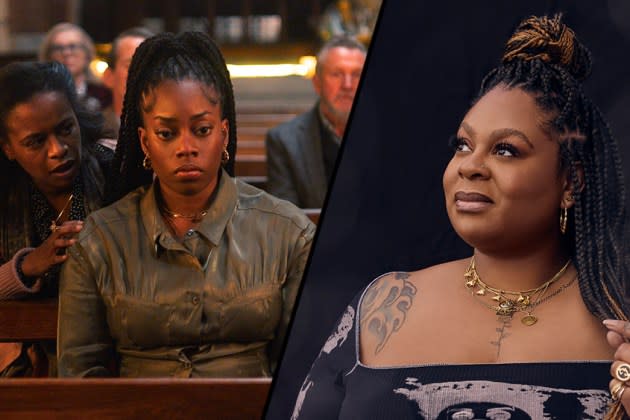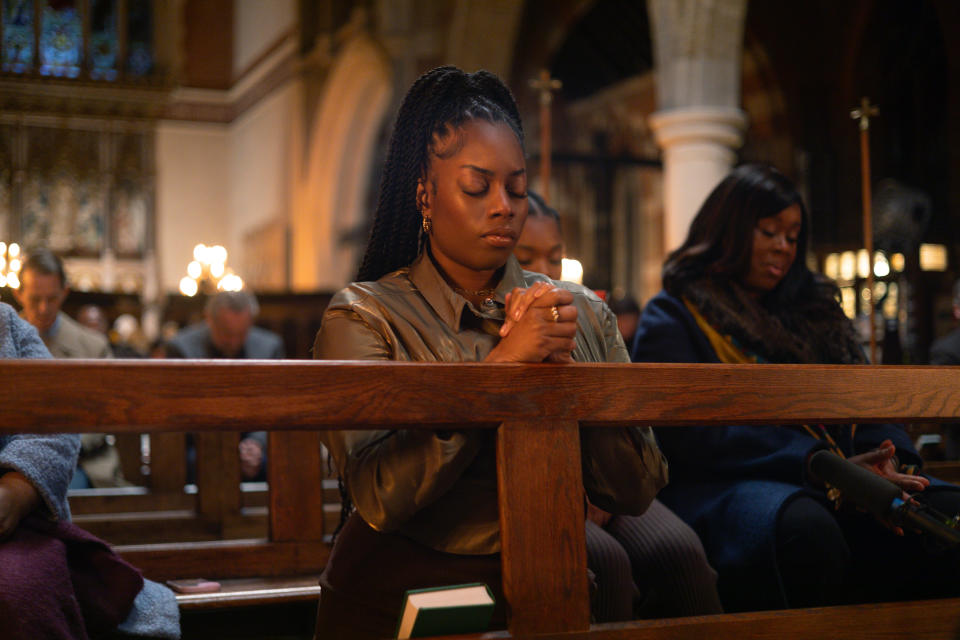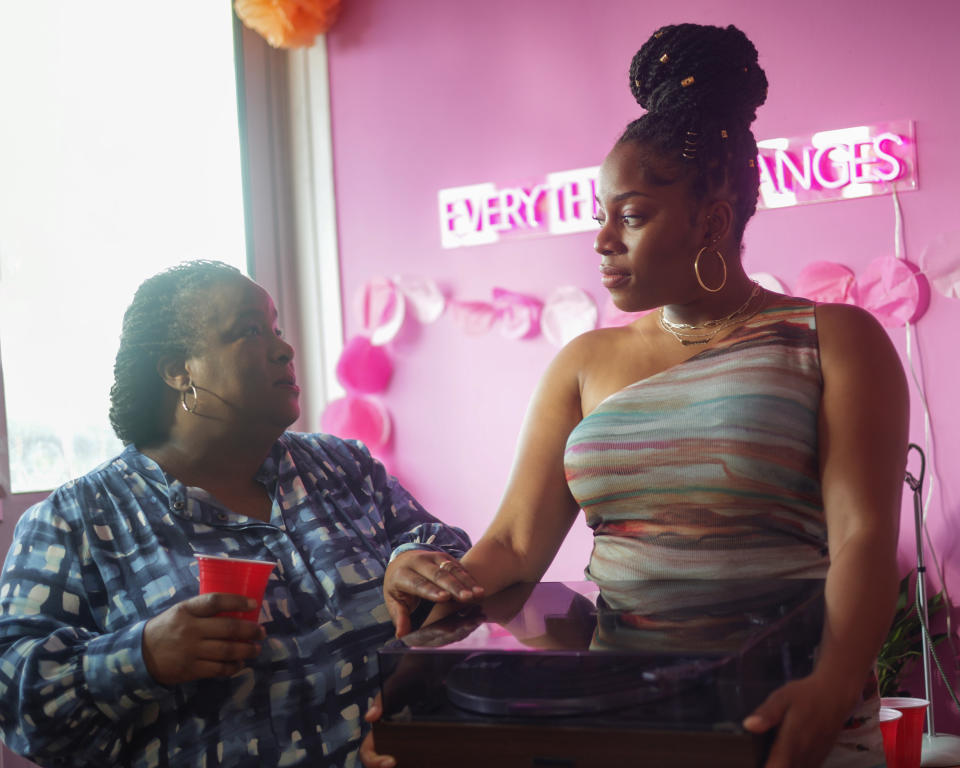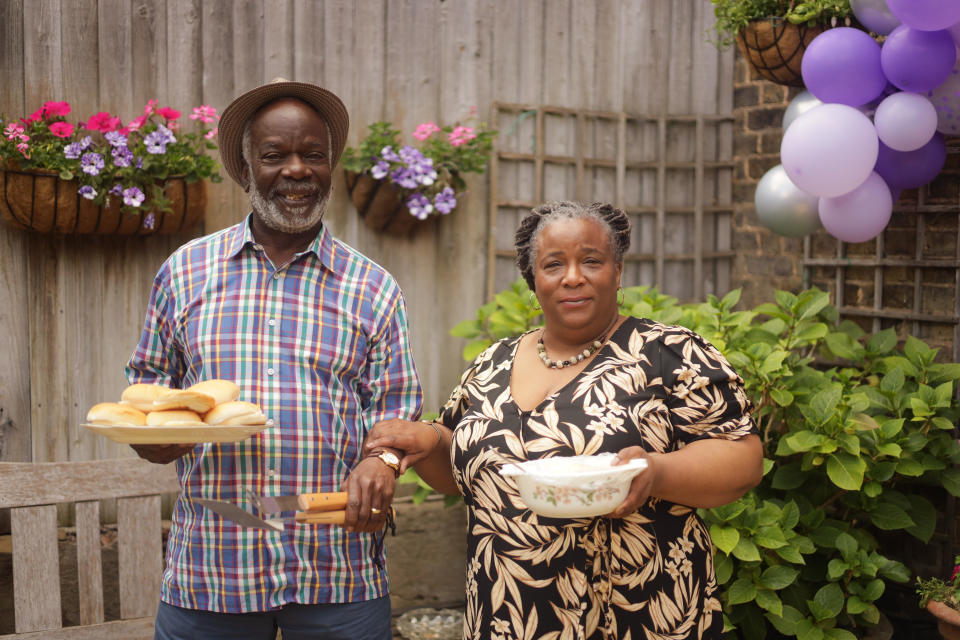‘Queenie’ Boss Candice Carty-Williams Breaks Down Season 1, Adapting Hit Novel

SPOILER ALERT! The following reveals major plot points for Season 1 of Hulu’s Queenie.
Best-selling author Candice Carty-Williams met with 15 production companies to discuss adapting her book Queenie before the award-winning novel was even published.
More from Deadline
Onyx Collective Sets ‘Queenie’ Premiere, Drops First-Look Photos
‘Queenie’ Trailer Sets Up Drama Series Ahead Of Season 1 Premiere
'UnPrisoned' Adds Brandee Evans, Oliver Hudson & Jamie Chung To Season 2
She wasn’t much older than her titular heroine’s age when she partnered with Lionsgate and it would be six more years before she completed her team with the addition of Channel 4 and Onyx Collective. Their 8-episode collaboration is available to stream now via Hulu.
Across Season 1, Queenie (Dionne Brown) comes to terms with her upbringing in a Jamaican British family that raised her to be strong and to avoid tough emotions. So when her boyfriend Tom (Jon Pointing) wants to take a clean break from their relationship, Queenie spirals. She resorts to finding other men who don’t treat her well while past trauma resurfaces forcing her to face her demons in therapy.
“When I was writing, I didn’t have any expectations beyond [completing it] and forcing my friends to read it. When they did, they said, ‘I think you’re onto something,” Carty-Williams told Deadline. “When it was published, it was quite a shock. Everything that’s followed is still taking some getting used to — the scale of the book and where this character and her friends and family have gone and are going.”
The past two years as showrunner involved Williams spending 48 days on set and nine months in the editing room making sure the show was “as perfect as could be.” The author and showrunner spoke more in-depth about Queenie’s long journey to the screen, key parts of the book she wanted to highlight and final moments for Queenie.
DEADLINE: What daunted you the most about stepping into the showrunner role, and what did you find you had a knack for?
CARTY-WILLIAMS: The biggest thing is when you write novels, it’s a solitary process, and then suddenly you find yourself on set and sometimes 100 people need your help, or something’s gone wrong and you need to sort it out. You don’t get any training for that so you just jump in. Luckily, I had showrun the show Champion the year before, so I kind of knew what happens when things go horrifically wrong in the middle of a shooting day and how you fix it.
You want [people] to feel safe and protected on set because it’s an extreme place and there are long hours. You’re in it together but you get the best from people when they feel good and they feel cared for.
DEADLINE: What was most important to nail down from the book in the show?
CARTY-WILLIAMS: It was Queenie’s world and her politics. Those were the key things because when you have so many different voices and sometimes risk-averse voices, you might lose some of the integrity of what you’re saying. In a book, you can say more of what you want because you know when someone’s bought the book they’ve bought it. But as soon as it gets to the screen, people can shout ‘No, turn it off!’ and you have to convince them that you still need to say what you need to. So, if people do turn it off then you don’t want them to be watching it anyway.

DEADLINE: With Queenie’s internal dialogue, how did you decide what stays in her head and what slips out of her mouth?
CARTY-WILLIAMS: We had a version of Queenie’s voiceover where, when we got everything together in the edit, it wasn’t always working. So, I had to rewrite most of her voiceover and re-record it with Dionne. It was a nice process because we got to build a shorthand.
It felt instinctive like, ‘What would I do as a person? What are the things going through my head as someone cool about the things that are affecting me?’ which I think a lot of women are. I think that’s one thing that historically all women do — hold everything in. So it was thinking about the things that, at 25, you are unsure of like not feeling confident in what you’re saying or thinking because external factors still play a huge part in the way you interact with people. I thought ‘What are the things that she would be saying to herself about every situation?’ It was fun!
The thing I love about Queenie is she’s not mean. I never wrote her to be mean. She’s not an unkind person. She doesn’t comment on people’s personalities or appearances. She’s very much like ‘This is you and this is the effect you’re having on me.’
DEADLINE: You wrote Queenie at 25, and then worked on it for a long time. What has this revisit to the story made clear to you?
CARTY-WILLIAMS: It wasn’t just the story that might not have come about, but it’s the way that it’s been told and being able to fortify the beliefs that I had when I wrote the book and how things are politically still as they were when I wrote the book. I’ve been able to stand on those things and flesh them out with the TV show because it’s not like I was saying all these things when I was an angsty, 25, 26-year-old. I thought, ‘Oh, I’ve grown up and it was all in my head.’ No, those things are still true and continue to hold me and women like me back. It was having the continued confidence to say what I wanted about this world that a lot of Black women in the U.K. are living in. The politics are almost entirely the same as before — the dating world, same thing. The only difference is social media so we’ve added more of that, but not enough that we’ve revolutionized the show and what that means in it. A lot of things have stayed the same.
DEADLINE: That makes me think of the neon sign Queenie has in her flat in the finale that says “Everything Changes.” What was that supposed to signal?
CARTY-WILLIAMS: I spoke to the set designer Gini Godwin about this a lot. We went back and forth about what that phrase should be. Everything is changing inside her but, everything is staying the same externally. So it’s everything changes within herself, and it was important for that to be the final thing that she would see and have because we started with her in one place, and we ended somewhere completely different. A much better place. Not a perfect place. But a place where she can be a lot more of herself.

DEADLINE: Can you share about expanding Frank‘s character and the end scene when he goes into the dance break with Queenie?
CARTY-WILLIAMS: In the novel, Frank is just Kyazike’s cousin who asked [Queenie] to dance when she was 16. It was the first time she was seen by someone. When you have a TV show, you have a medium where you can see things and experiment with them and see what that character looks like. It felt appropriate and it gave it a bit of balance to have it in amongst Queenie and Kyazike, who’s hugely important in her life. It was fun to play with what it meant that Kyazike’s cousin was doing this. And with Kyazike, who is Queenie’s friend and protector, especially in this time when Queenie’s meant to [be healed]. Frank’s a great character for a few reasons, and Samuel Adewunmi brought something special to that role. He knew who Frank was without having to go back into the novel and he wasn’t able to go back and find who that person was. But I think we understand who that person is. It wasn’t too hard for him.
DEADLINE: Based on the scene where Queenie’s grandpa talks to her grandma about how they need to learn from this generation, did Queenie always have this support system?

CARTY-WILLIAMS: Watching Queenie and what she’s going through and not being able to do anything has made grandma and granddad both have to think about how they grew up. I wanted to write an episode set in the past to show their origins and how joyful they were. But also, there’s this secret that grandma’s been hiding for a long time that she doesn’t think anyone knows, but granddad knows.
There’s a scene in the final episode at Queenie’s housewarming where granddad is talking to Queenie about when she arrived at their house with all of her things. He said it felt like when Sylvie arrived. You can imagine that for the last few years, he’s always had that in his head and he’s never been able to do anything about it. But he recognized that this is the way that the external world treats the woman in his life that he loves. Grandma is very against therapy and has to go get Queenie from therapy and she’s irritated about it. Not just because she’s had to make the journey but also because politically we don’t do those things. But those two people are proud to see that you have to make a change and have to sit in discomfort to become the people that you need to be. They’re recognizing it in their 70s that that’s what Queenie does. She’s disruptive but in a good way.
This interview has been edited and condensed for length and clarity.
Related News:
Netflix Boards BBC Drama ‘Champion’ From ‘Queenie’ Writer Candice Carty-Williams; Reveals Cast
‘Queenie’: Onyx Collective Boards Candice Carty-Williams & Channel 4 Drama; Cast Unveiled
Best of Deadline
TV Cancellations Photo Gallery: Series Ending In 2024 & Beyond
2024 Premiere Dates For New & Returning Series On Broadcast, Cable & Streaming
Sign up for Deadline's Newsletter. For the latest news, follow us on Facebook, Twitter, and Instagram.


